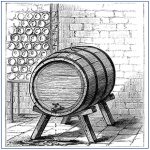Distilled Spirits Plant Requirements
Distilled Spirits Plant Requirements
License are required for distillation, blending, processing, rectifying, warehousing, and bottling of distilled spirits. Only registered distilled spirits plants may produce distilled spirits. Production of distilled spirits for personal use is prohibited.
Lindsey A. Zahn, Esq. is an alcohol beverage and food attorney at Lehman Beverage Law, PLLC. Ms. Zahn has previously counseled wine, beer, and spirits companies on licensing and compliance, federal and state labeling, customs regulations, supplier agreements, and advertising and promotions. She is an award-winning author on wine law, publishes a leading wine law blog called On Reserve, and has traveled to over a dozen wine regions in the U.S. and Europe.
John D. Messinger, Esq. is an attorney at Lehrman Beverage Law, PLLC. He joined the firm in 2006 as a law clerk, after working as an intern and consultant with the World Bank, Legal Operations and Policy. John focuses on TTB labeling and formulation matters and also state compliance issues.
John has a particular interest in beer and craft beer issues, and he is an avid small-scale brewer.In this CLE class clip, Lindsey and John discuss Licenses Needed for Distilled Spirits Plants.
There are a few basic requirements of a distilled spirits plant. The plant needs a proper location, one that is not located in, or near a residence. You will need a full description of the plant’s location and construction, as well as full details on plan operations. A complete list of all major equipment the plant uses will need to be kept up to date. Distillers are also required to document the plant security measures, whether you plan to use an alarm system, or security guards, your plan needs to be documented. In addition to security, a complete environmental assessment needs to be explained. How the distilling operation deals with waste and other environmental concerns, must be provided for.
Insurance is another requirement of a distilled spirits plant. Your plant will need to be bonded. The bond is to cover the spirits on the premises that are not yet tax paid. On the location floor plan, you will need to clearly mark where your bonded premises are, either by walls, or markings on the floor. Once you remove the spirits from the bonded premises, when you bottle it and ready it for sale, that is the time you pay the federal excise tax. The bond covers the spirits that you’ve not paid taxes on.








